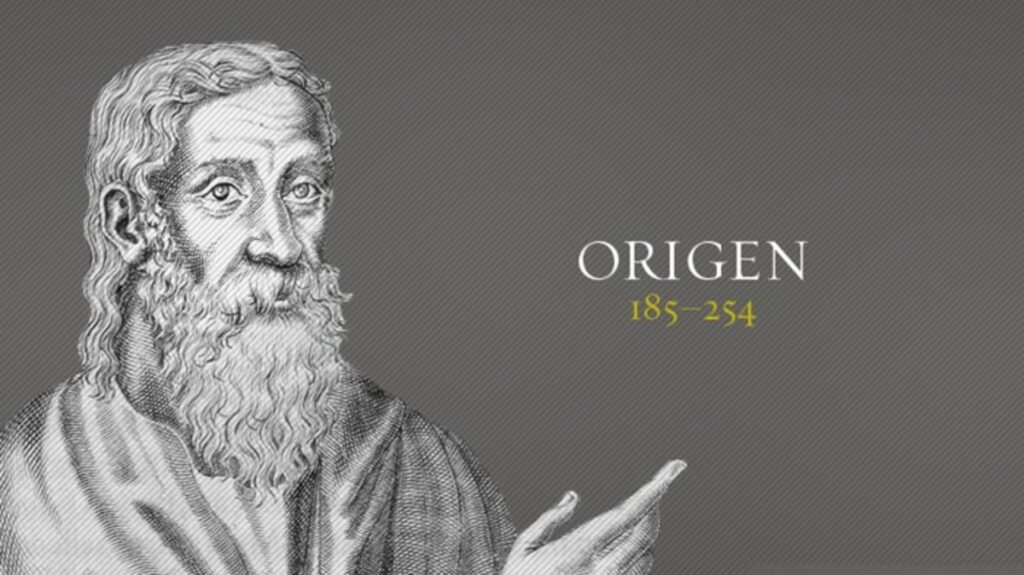Universalism
In college, I wrote a paper in a Church History class about how and when eternal conscious torment became official church doctrine. I copied and pasted it into this website and it can be found HERE. While researching for that paper, I was surprised by the history of universal reconciliation and how prevalent it was in the first five centuries after Christ. Especially curious is who was encouraging UR and teaching this doctrine. As a result, I thought it would be beneficial to write a summary of the history of that view so people can get a clearer understanding of what UR entails and where it originated.
History of Universal Reconciliation
Between 70AD and about 150AD, writing was sparse—especially by Christians. We do not have much material from that period, so it makes deciphering the early Christiaan view of any particular doctrine problematic. However, we know a bit of what some church fathers taught concerning the fate of the wicked from writers such as Ignatius of Antioch, Polycarp, and Justin Martyr. Though we have some writings from these church fathers, we do not have much of their work left to glean information from. Consequently, we must piece together ideas and concepts from what little writings are still extant, along with quotes from other Christian thinkers of that era, and attempt to put together a portrait of what they taught, albeit an incomplete one.

Though we do not have many writings left to get a holistic picture of what all the early fathers specifically taught, we do know that the infamous Origen of Alexandria was perhaps the first to introduce a collective, universal reconciliation, except that his view saw complete reconciliation of Satan and his demons also, which upset a significant number of other Christians. Origen of Alexandria, a gifted writer, and scholar, was the first teacher at the theological school of Alexandria. This seminary taught universalism, though it is unclear whether every student accepted Origen’s view of the complete reconciliation of Satan and the demons. There was another view that seemingly originated from the ancient seminary in Antioch that saw universalism much like how it is viewed today—complete restoration of all individuals (less Satan and his demons) after a period of “purifying” or “cleansing.” Most of the adherents to universalism (both today and the ancient Antiochene view) still believe in the form of “punishment” after death, but it is after that period that there will be complete reconciliation. Numerous opponents of this view frequently strawman the universalist argument and claim that under UR, even Hitler will go straight to heaven. However, that is simply not true because many universalists do believe in the form of punishment, or purification, after death that would still bring about God’s justice.
God’s Refining Justice by Fire
For example, much of the teaching of universalism from the early church focuses on the word fire in Greek, which is similar to a refiner’s fire. Examples of this are evident in biblical writings such as Zachariah 13:9, which states, “And I will put this third into the fire, and refine them as one refines silver, and test them as gold is tested. They will call upon my name, and I will answer them. I will say, ‘They are my people’; and they will say, ‘The Lord is my God.” Likewise, Malachi 3:2 states about God’s judgment, “But who can endure the day of his coming? Who can stand when he appears? For he will be like a refiner’s fire or a launderer’s soap.” This verse connects the judgment of God with a refiner’s fire to demonstrate precisely what God will accomplish on the day of His coming. Though there are numerous additional instances of a refiner’s fire in the OT, these two should suffice in presenting the case that fire is not constantly about torturing people or even consuming them to ashes but producing individuals to be pure before the Lord.

Others Who Taught Universalism
There were many adherents to this position in the early centuries besides Origen, who is simply the most famous of the early fathers who taught a form of universalism. It is important to note, however, that Origen was condemned as a heretic not for his belief in universalism but for many other errant views, such as the transmigration of souls (reincarnation) and complete reconciliation of Satan, among many others. Most assume that his belief in UR condemned him, though that is incorrect. There was an extensive belief in universalism in the first few centuries, and virtually no other Christian theologian or philosopher condemned it as heretical. Indeed, the silence and lack of criticism from other church fathers indicate that the hell debate remains a secondary concern and not one that ought to condemn an individual. Even Augustine (who never condemned universalism) admits that many in his day believed in UR.
It was not until Tertullian that eternal torment became mainstream in Christianity. Tertullian was a native Latin speaker (though he did learn Greek) and did not convert to Christianity until later in life, when he was forty years old. Likewise, he had a pagan upbringing from a family who were not Christians but eventually became an enormous defender of the faith and one of the original “apologists” for Christianity. He is frequently recognized for assigning the phrase “trinity” to the relation of the Father, Son, and Holy Spirit and was an excellent thinker. However, it is his belief about hell that is quite troubling. He appears to take great joy in his opponents being tormented in hell when he writes,
- At that greatest of all spectacles, that last and eternal judgment how shall I admire, how laugh, how rejoice, how exult, when I behold so many proud monarchs groaning in the lowest abyss of darkness; so many magistrates liquefying in fiercer flames than they ever kindled against the Christians; so many sages philosophers blushing in red-hot fires with their deluded pupils; so many tragedians more tuneful in the expression of their own sufferings; so many dancers tripping more nimbly from anguish then ever before from applause.
- What a spectacle. . .when the world. . .and its many products, shall be consumed in one great flame! How vast a spectacle then bursts upon the eye! What there excites my admiration? What my derision? Which sight gives me joy? As I see. . .illustrious monarchs. . . groaning in the lowest darkness, Philosophers. . .as fire consumes them! Poets trembling before the judgment-seat of. . .Christ! I shall hear the tragedians, louder-voiced in their own calamity; view play-actors. . .in the dissolving flame; behold wrestlers, not in their gymnasia, but tossing in the fiery billows. . .What inquisitor or priest in his munificence will bestow on you the favor of seeing and exulting in such things as these? Yet even now we in a measure have them by faith in the picturings of imagination. [De Spectaculis, Chapter XXX]
As in the above quote, this view of eternal torment was also continued by Tertullian’s student, Cyprian of Carthage, who was extremely similar to Tertullian in his afterlife beliefs. However, it was not until the great Augustine did eternal torment become prevalent within Christianity. Similar to his predecessors, Augustine is from North Africa, spoke Latin, and had an incredibly illustrious pagan religious upbringing in a cult called Manicheism. This pagan religion of Augustine likewise taught the traditional view of hell, where individuals are delivered to be punished for eternity. Even though Augustine did not deem universalism heretical, it was around this time that belief in UR started to diminish. Similar to when Hellenistic culture started to take over the world, the Latin culture from Rome began to take over in the fourth and fifth centuries and slowly eroded the Greek culture, context, and language from which the NT writers wrote, further lessening the understanding of the proper context from which the Bible was written.
Universalism Condemned
There is a considerable amount of debate about precisely when universalism was ultimately condemned as heretical. Most claim the second council of Constantinople in 553AD is when it became sanctioned, but there is a considerable amount of gray area surrounding that declaration. A great blog post that takes a massive, in-depth look into this exact issue is found HERE. It is long but full of excellent information on the argument surrounding the eventual heretical condemnation of universal reconciliation. Essentially, it is ambiguous as to the precise date and place when UR was deemed heretical because most of the language of those councils condemns Origen and his various doctrines. Still, nothing really condemns his view of UR alone. Moreover, other church fathers, such as Gregory of Nyssa are venerated as Catholic saints, and he was a widely known universalist. Therefore, how can universalism itself be condemned if some who held to UR are now saints in the church? Interestingly, many contemporary Evangelicals automatically assume universalism is heretical yet are entirely unaware of how much support it received in the early centuries of the church.
Conclusion
Hopefully, this post some individuals a bit in understanding universal reconciliation and how it was perceived in the early church. For someone to claim that the traditional view of hell has been the church’s official teaching for the past two thousand years is simply (and factually) incorrect. The first five centuries saw massive support for both universalism and annihilationism, with virtually no one denouncing those teachings. Though Origen saw massive amounts of condemnation, it was not strictly about his belief in UR, but other ideas that labeled him as a heretic. It would be beneficial to have more fruitful discussions with those who believe in UR to understand what they believe, rather than simply calling them a heretic and walking away.
Previous blog post on annihilationism is found HERE
Next blog post on “words of hell” is found HERE
Further Reading:
Beecher, Edward. History of Opinions on the Scriptural Doctrine of Retribution. New York, NY:D. Appleton & Company, 1878.
Hanson, John Wesely. Universalism, the Prevailing Doctrine of the Christian Church During its First Five Hundred Years; With Authorities and Extracts. Scholar Select Series. Andesite Press, 2017.
Did the Fifth Ecumenical Council Condemn Universal Salvation?
https://www.tentmaker.org/Quotes/hell-fire.h


